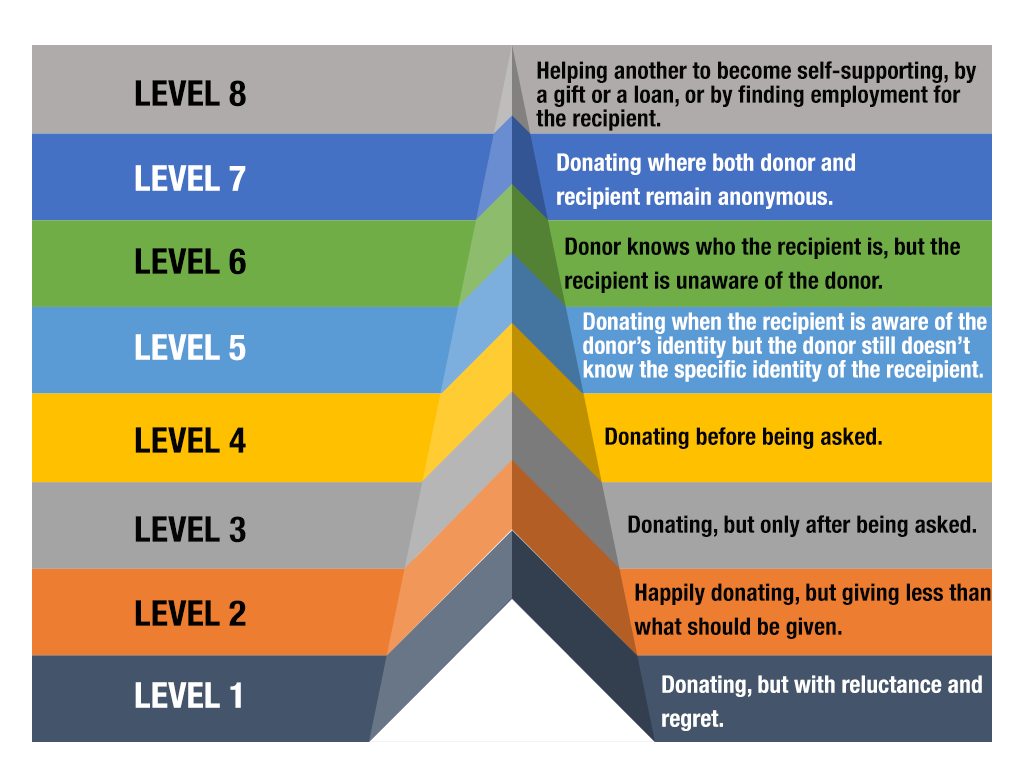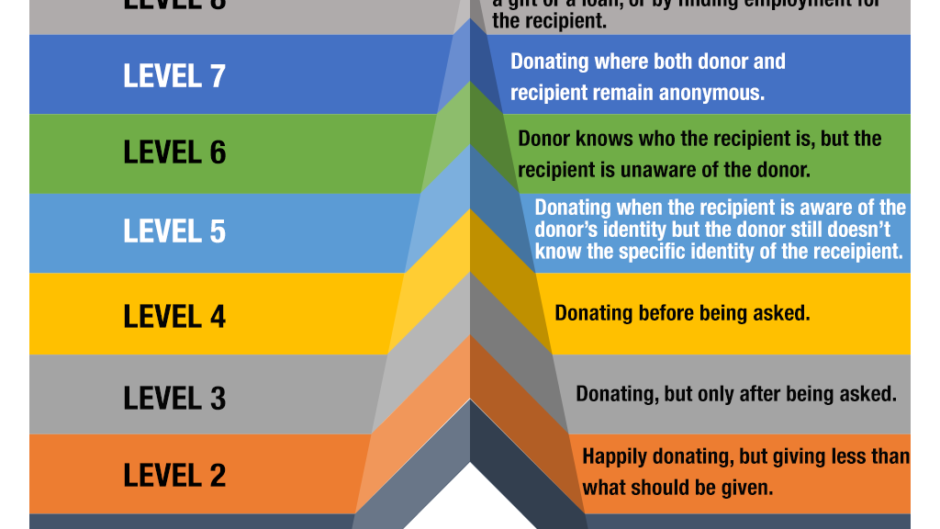
Every now and then, my worlds overlap. I am a proud fundraiser, and I am also a proud Jew. I have often found solace in the teachings of my faith that have guided me as a fundraiser. As I have written about before, ethics are a massive component of successful fundraising. And one of my favorite Jewish texts is Pirkei Avot, Ethics of our Fathers, which tackles some pretty heady ethics. So what is the whole 8 degrees of charity concept?
Maimonides was a scholar that wrote a 14-volume series on Jewish law. Many Jews still use this as a daily resource for conducting ourselves. Even 850 years after Maimonides’ writings, his teachings allow people to live a more ethical and fulfilled life. And, yes, charity existed 850 years ago (and earlier). Maimonides believed that Tzedakah is like a ladder. It has eight rungs, from bottom to top. Each step you climb brings you closer to heaven.
I have come across many people who have used this ladder/pyramid. I find it most interesting that the highest of all the degrees of charity is not giving a big donation. Instead, it is helping the recipient to become self-sufficient. This occurs by finding them a source of income (either a job or a loan). Having this as the highest rung places a more significant value on the recipient’s dignity and self-respect than on any other level.
I believe that donors today have become much more purposeful in their philanthropy. There is much more thought taken in the act of giving. We have all been at Level 1 before — someone has coaxed us into a gift that we had no intention of giving in the first place, but we donate anyways (albeit grudgingly).
Are the Degrees of Charity Out of Order?
As you move up the ladder, I can now hear that some of the readers will think that Level 3 and Level 4 are in the wrong order. It is not true. What needs to be understood is that Levels 3 and 4 assume that the donation given is an appropriate level of donation. To translate this into Major Gift speak, you don’t want a Major Donor preemptively giving you a gift of $500 before you have had a chance to ask for their support. BUT, if that Major Donor preemptively gave $1 million before you asked for support, that may be appropriate.
All of this is to say that fundraising is complicated. Likely because it is such an emotional exercise. Each rung is, after all, one of the degrees of charity. As such, they should be celebrated as a positive step in and of itself. The logical part of your brain stays away from giving away your resources, but the emotional aspect drives philanthropy. This illustration tries to tie the logic in with the emotional.
I hope you have been somewhat inspired by this blog and look at charity from a different lens.
L’chaim,
jack



